Symposium on Discipline Construction and Education and Teaching of the Academy of Arts & Design, Tsinghua University was Held at Tsinghua (Qingdao) Academy of Arts and Science Innovation Research
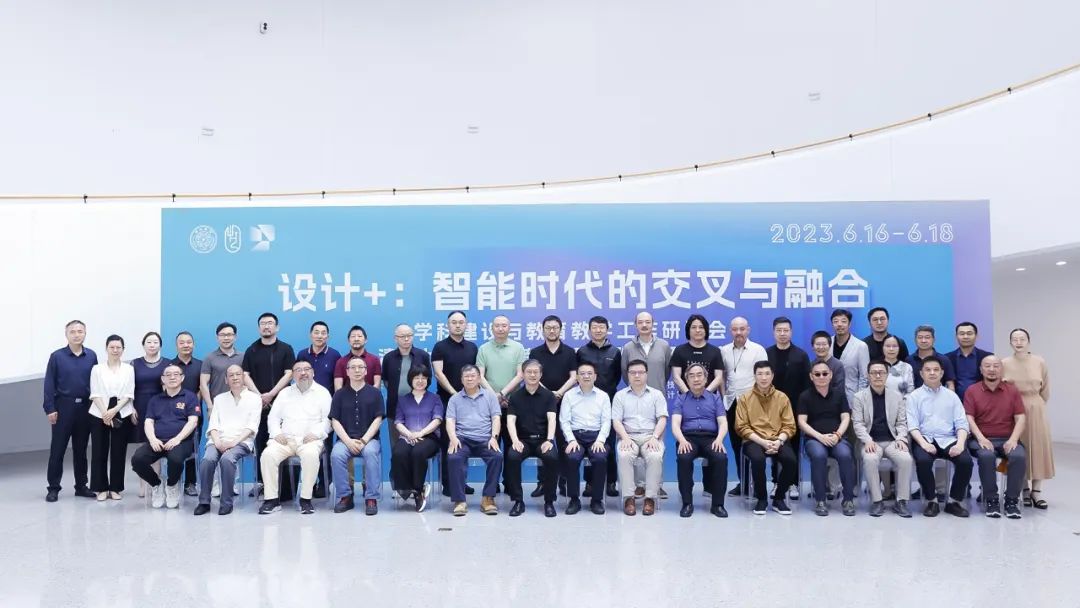
On June 17, 2023, the Symposium on Discipline Construction and Education and Teaching of the Academy of Arts & Design, Tsinghua University, sponsored by the Academy of Arts & Design, Tsinghua University and organized by the Tsinghua (Qingdao) Academy of Arts and Science Innovation Research was Held at Tsinghua (Qingdao) Academy of Arts and Science Innovation Research. PENG Gang, Vice President and Academic Dean of Tsinghua University, YANG Yongheng, Director of Office of Arts, Humanities and Social Sciences Administration of Tsinghua University, MA Sai, Dean of the Academy of Arts & Design, Tsinghua University, QIN Chuan, Secretary of the Party Committee of the Academy of Arts & Design, WU Qiong, Deputy Secretary of the Party Committee of Academy of Arts & Design, Deputy Directors YANG Dongjiang, FANG Xiaofeng and ZHAO Chao, LI He, Deputy Secretary of the Party Committee of the Academy of Arts & Design, Deputy Director DONG Shubing, ZANG Yingchun, Executive Dean of Tsinghua Arts and Design Institute in Milan (ADIM) and Director of Department of Textile and Fashion Design, the Academy of Arts & Design, leaders of all Departments and Divisions, and members of the Academic Committee, attended the symposium. The symposium was presided over by QIN Chuan, Secretary of the Party Committee of the Academy of Arts & Design, and YANG Dongjiang, Deputy Director of the Academy of Arts & Design, respectively.
Scene of the symposium
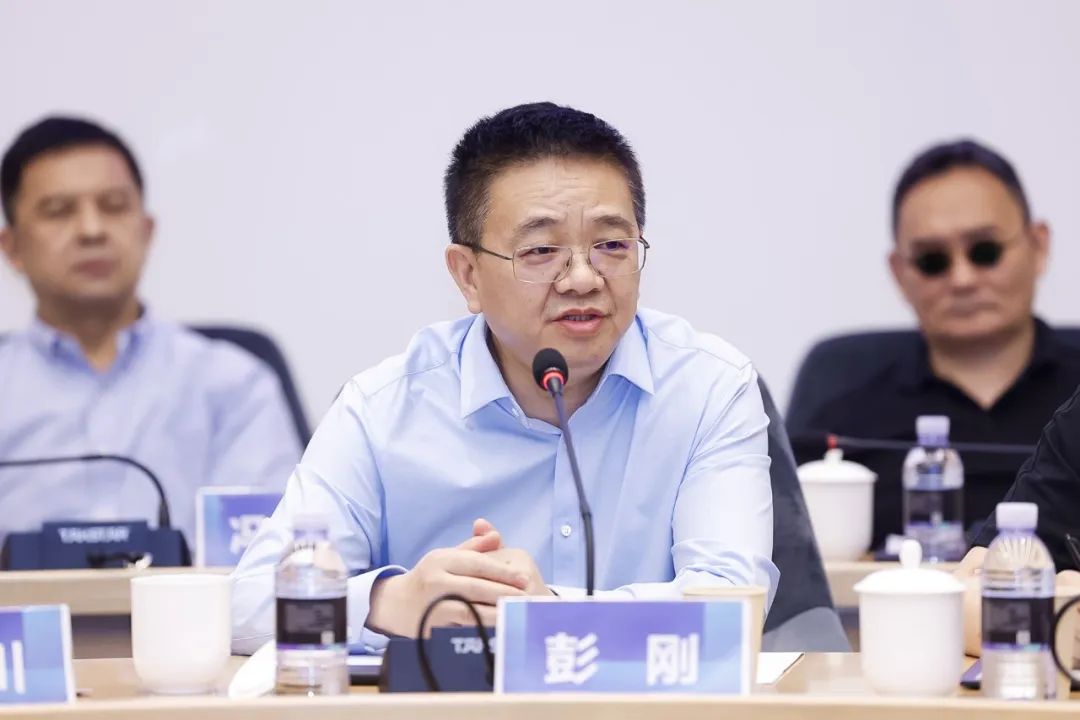
PENG Gang, Vice President and Academic Dean of Tsinghua University
Vice President PENG Gang spoke highly of the achievements of this symposium. In his opinion, teaching was equal to learning, and education and teaching should be regarded as academic research. He said that in order to balance the relationship between "integrity" and "innovation", the Academy should consolidate the foundation of achievements and deal with possible crises. On the one hand, the Academy should inherit and carry forward the tradition of sound and solid basic training and teaching of the former Central Academy of Arts & Design; on the other hand, the Academy should fully implement the "three-pronged" educational philosophy and meet the requirements of "wide specialty, profound base, emphasizing the practice, and seeking for innovation" for undergraduate talent cultivation. In addition, he stressed that in order to quickly adapt to the great changes in the current era and establish a development consensus, the Academy should persist in exploring the development of disciplines such as design, arts and art history with China characteristics, keep in mind the great mission of "a shaper of national image, a creator of better life, a inheritor of excellent culture, a leader in the integration of arts and sciences, and a builder of innovative talents", and make full use of the platform advantages of Tsinghua University. He also pointed out that the construction of Tsinghua (Qingdao) Academy of Arts and Science Innovation Research ("TASA") should be based on the whole-discipline advantages of Tsinghua University, with the goal to be an important driving role for the Academy of Arts & Design and even across the University.
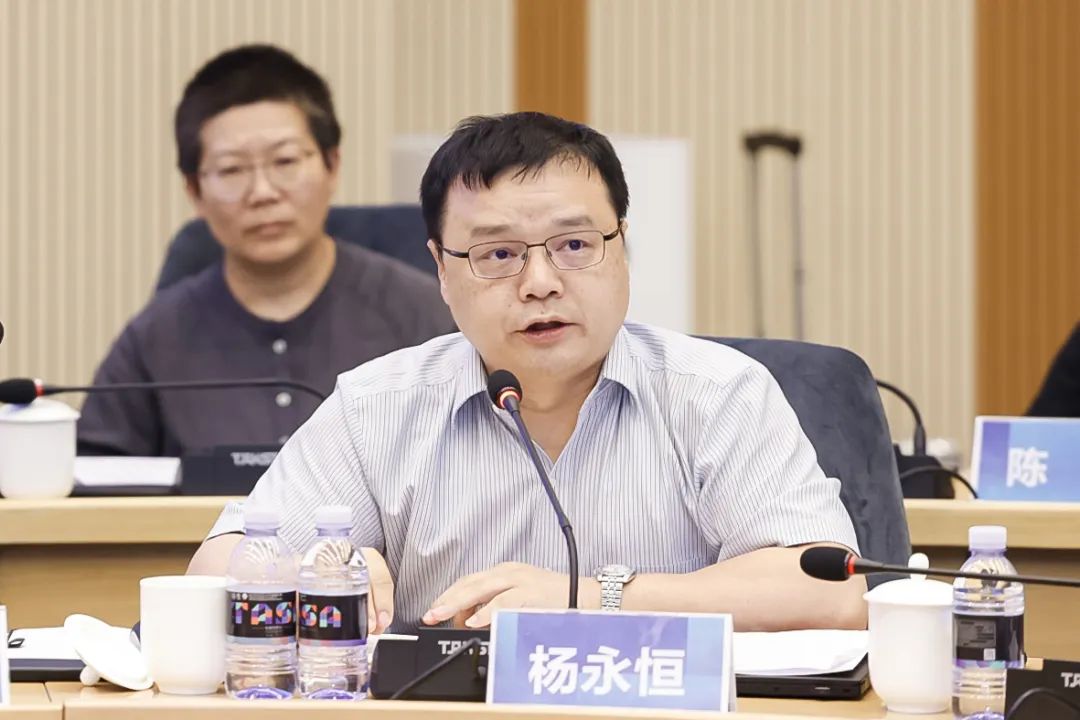
YANG Yongheng, Director of Office of Arts, Humanities and Social Sciences Administration of Tsinghua University
In his speech, YANG Yongheng made comments and suggestions on the construction of interdisciplinary disciplines of the Academy of Arts & Design. He pointed out that in order to continuously improve the effectiveness of discipline integration, the Academy should attach importance to the strategic thinking of research and forward-looking planning by adhering to the goal of future-oriented advanced development orientation and dealing with the issues of being realistic and pragmatic, keeping integrity and innovation.
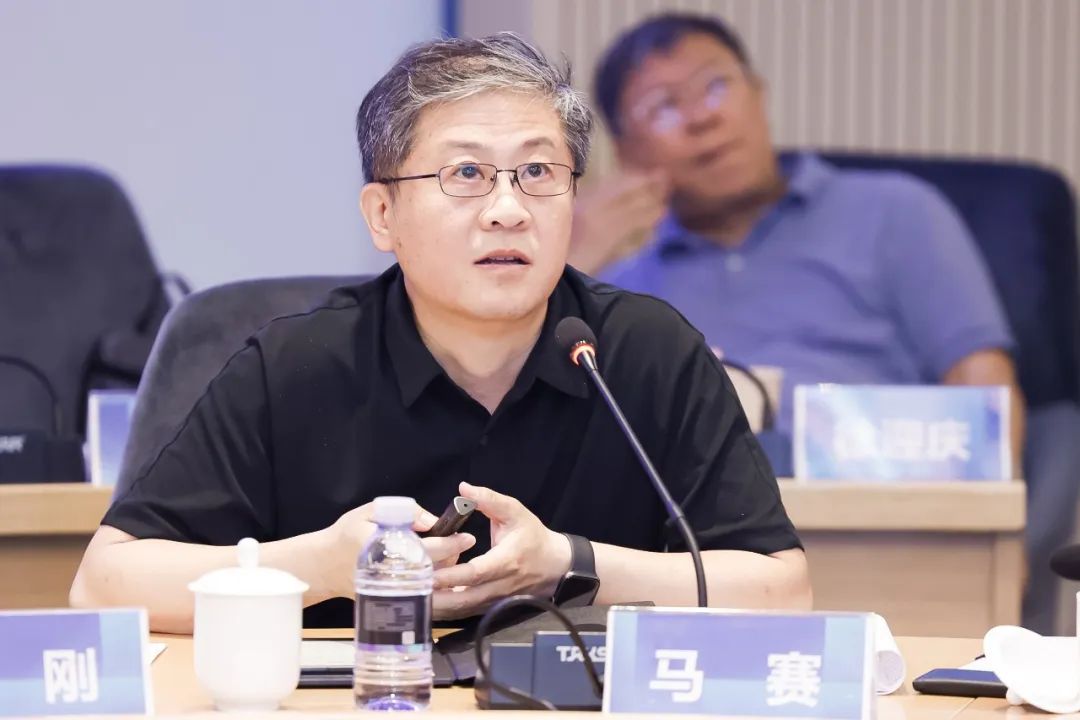
MA Sai, Dean of the Academy of Arts & Design, Tsinghua University
MA Sai delivered an opening speech. In his speech, he stated that in order to continuously advance the reform of education and teaching and improve the talent cultivation system, the Academy should grasp the nature of "what kind of talents shall we cultivate, how shall we do to cultivate the talents and what's the role of teachers in the training system". He emphasized that the Academy should, based on comprehensive and systematic concepts, continuously strengthen interdisciplinary construction, regularly conduct multi-level and all-field interdisciplinary communication, and actively build a regular and effective discussion system, so as to deeply understand the inherent links among different majors of design discipline, and demonstrate the leading and exemplary role of Tsinghua University in discipline construction and education and teaching.
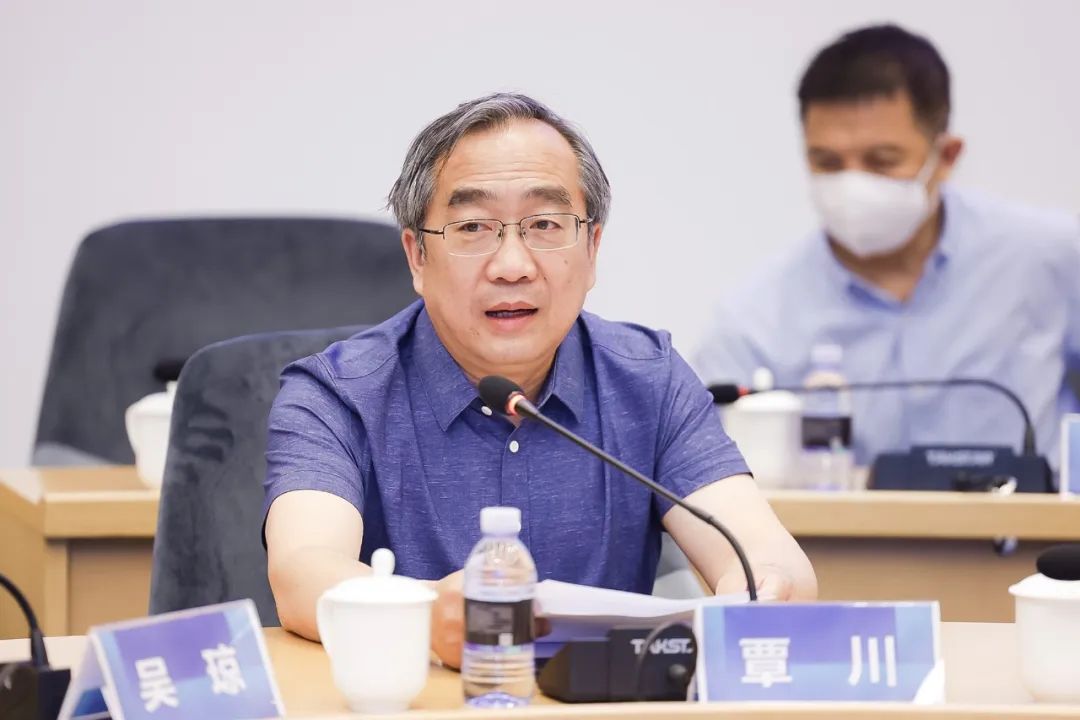
QIN Chuan, Secretary of the Party Committee of the Academy of Arts & Design, Tsinghua University
In the opinion of QIN Chuan, the Academy should always carry out education and teaching reform based on the big picture of talent cultivation, properly handle the relationship between innovation and integrity, and the relationship between teaching and learning, get ahead through constant thinking, make decisions through careful thinking, and build the courage of self-revolution. At the same time, he pointed out that design is a future-oriented and innovative discipline, and the Academy should actively think about the adaptability of design discipline under the background of AI development, so as to realize the effective organic integration of the development of scientific and technological productivity, the cultivation of talent resources and the promotion of innovation driving force.
Summary on Education Reform
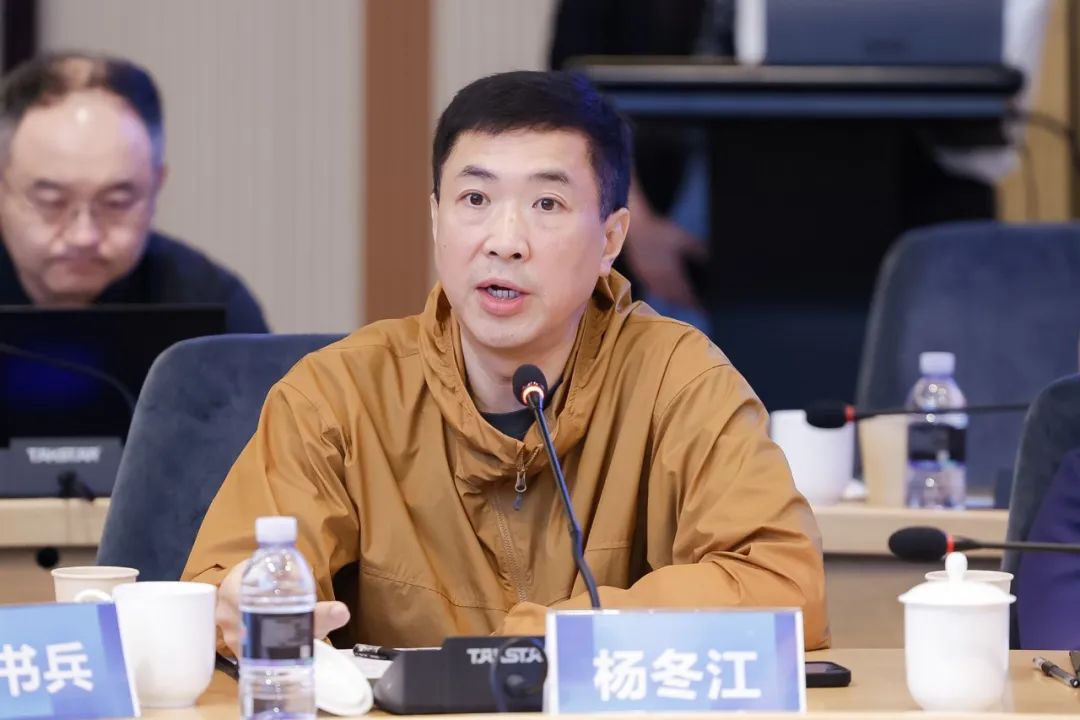
YANG Dongjiang, Deputy Director of the Academy of Arts & Design, Tsinghua University
In the report on education and teaching reform, YANG Dongjiang analyzed the general situation of education and teaching in the Academy of Arts & Design including the overall background, current status of disciplines and specialties, the distribution of credits and existing problems, gave a summary of the basic course construction scheme, and emphasized the recent priorities of education and teaching reform, such as the improvement of undergraduate training program, the integrated design of successive bachelor/master cultivation mode, and the highlight of professional degree setting.
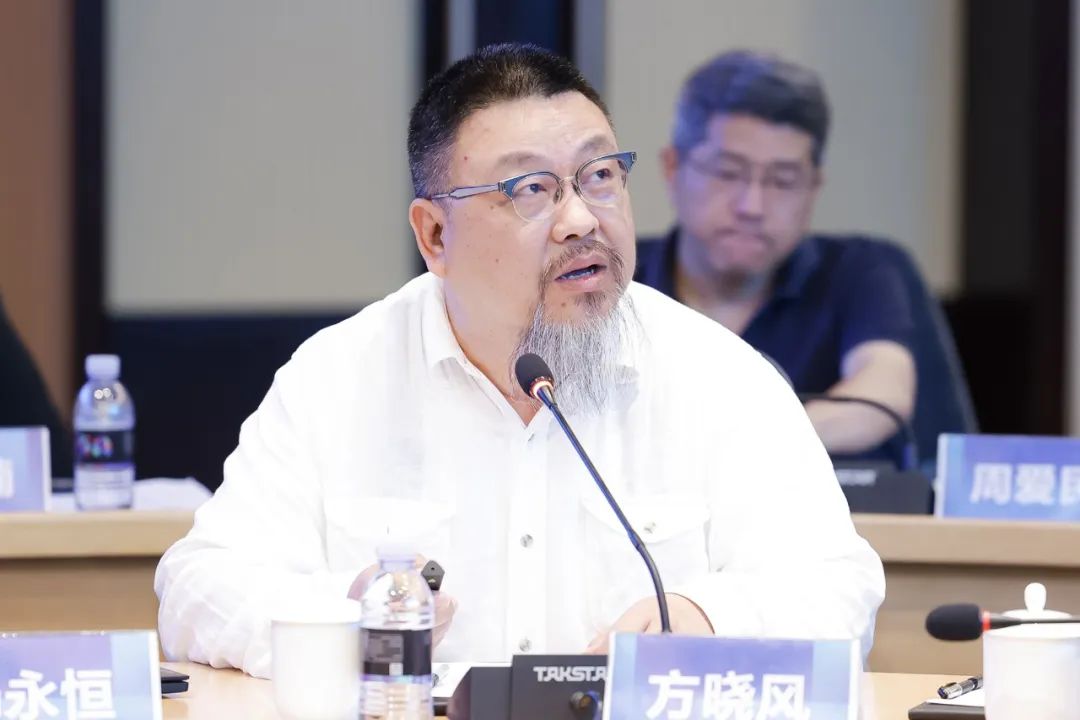
FANG Xiaofeng, Deputy Director of the Academy of Arts & Design, Tsinghua University
In addition to the discipline construction and relevant organized research of the Academy of Arts & Design, FANG Xiaofeng gave a summary report on the general principles of scientific research development in the 14th Five-Year Plan of the Academy, the scientific research development in the construction of "Double First-Class" disciplines, the identification of dominant research contents and major research directions, scientific research development priorities and optimized paths. In addition, he put forward the development objectives of organized research on creating a new paradigm of art and design research, serving the people's livelihood by means of industrial linkage, and enhancing the international influence of research achievements.
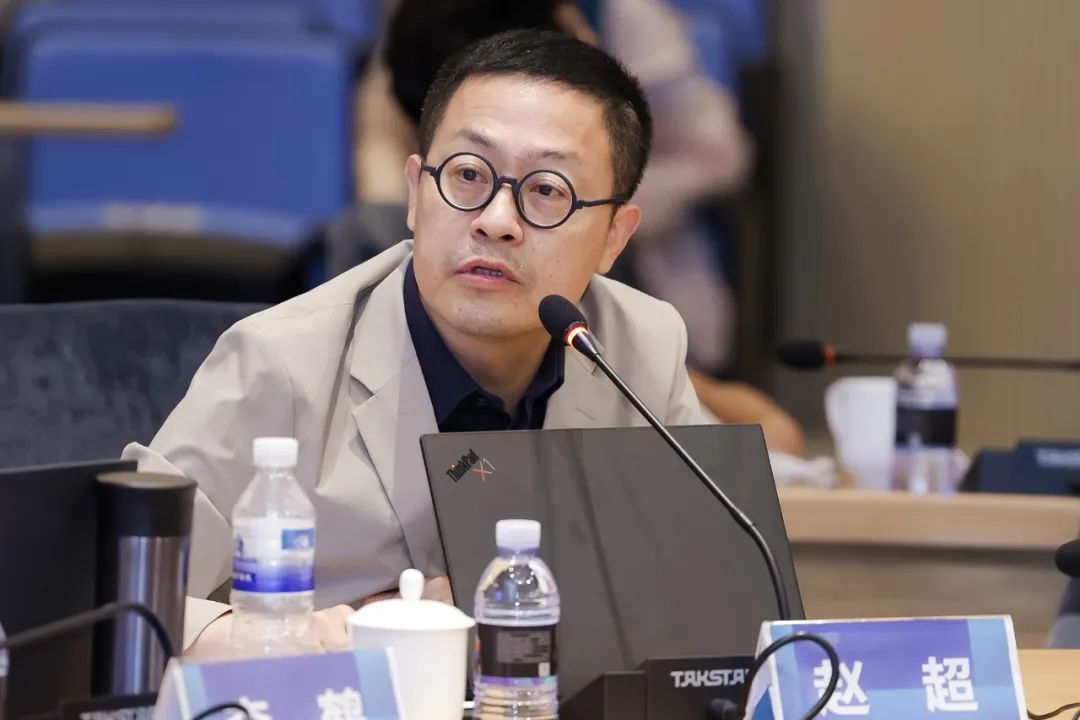
ZHAO Chao, Deputy Director of the Academy of Arts & Design, Tsinghua University
On behalf of Tsinghua (Qingdao) Academy of Arts and Science Innovation Research (TASA), ZHAO Chao delivered a detailed work report from the five aspects such as strategic planning, implementation scheme, key achievements, system construction and future expectations. He said that TASA was bringing the platform integration effect of high-quality resources of the school into full play at deeper, wider, and more generalized levels. It also intended to identify breakthroughs and entry points, actively connect with and serve the development of key regions, and demonstrate responsibility in promoting Qingdao and even Shandong's participation in China's national development.
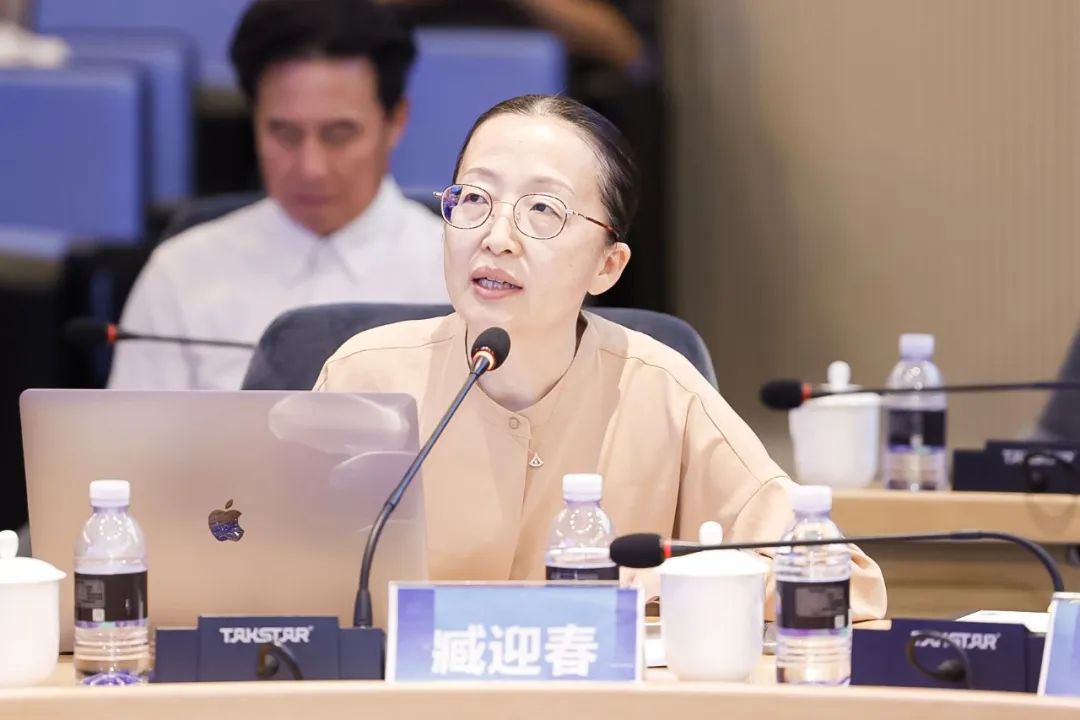
ZANG Yingchun, Director of Department of Textile and Fashion Design, the Academy of Arts & Design, Tsinghua University
Based on the lateral comparison of the development status of related disciplines at home and abroad, ZANG Yingchun gave a summary of the teaching situation of the Department of Textile and Fashion Design in terms of the judgment for the objectives and positioning of professional development, the adjustment and revision of training programs. In her opinion, in order to cultivate modern and unique textile design talents with independent spirit and future vision, the teaching of textile design should always adhere to the multi-integration direction of inheriting tradition and striving for innovation, and continue to learn from international diverse and advanced design ideas and teaching concepts in the future.
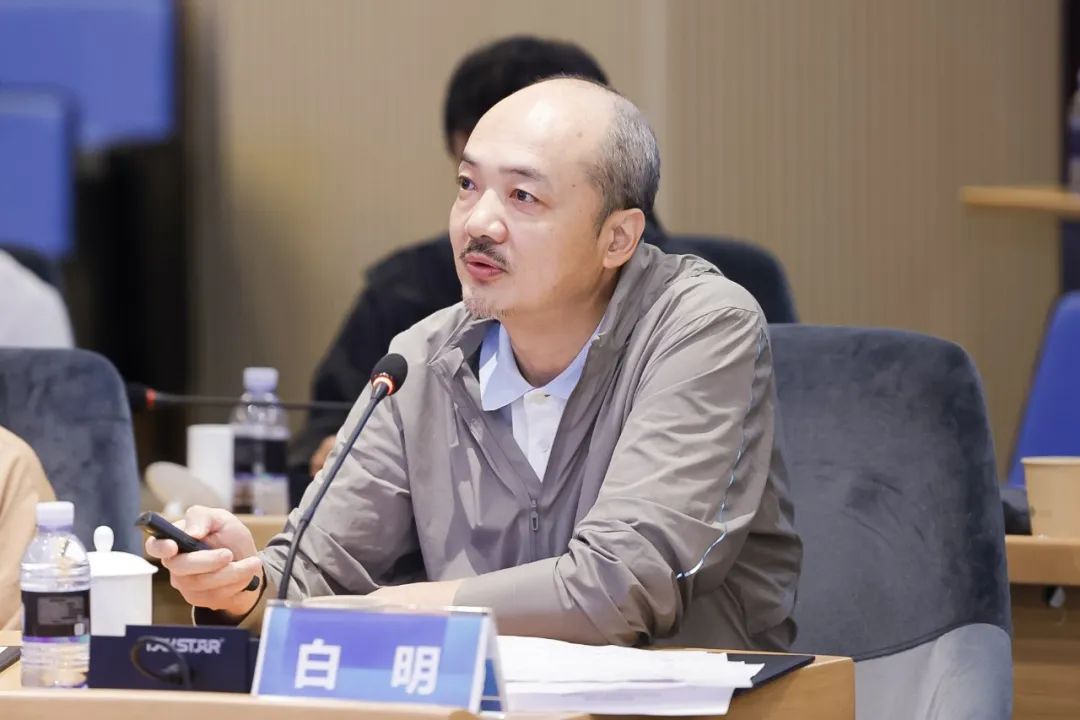
BAI Ming, Director of Department of Ceramic Design, the Academy of Arts & Design, Tsinghua University
With regard to the teaching of the Department of Ceramic Design, BAI Ming briefly described the development of the Department of Ceramic Design, its objectives and positioning of professional curricula, and the research and development of ceramic specialty in relevant universities at home and abroad. He suggested that the professional training program should be adjusted and modified to cultivate talents on the basis of common knowledge.
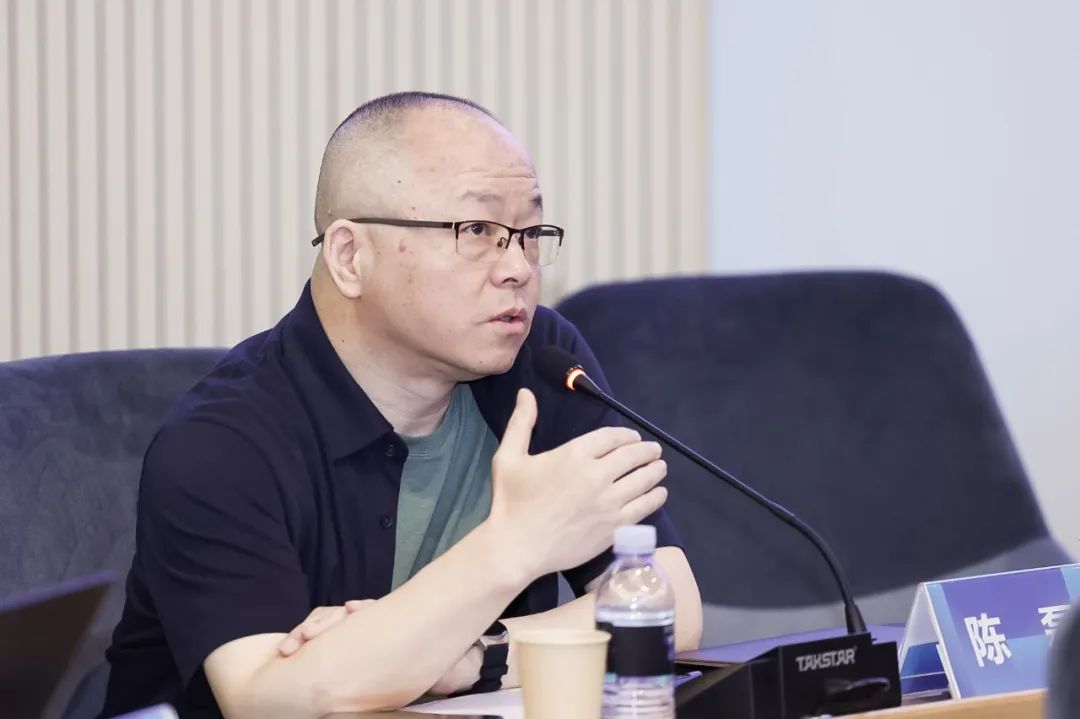
CHEN Lei, Director of Department of Visual Communication Design, the Academy of Arts & Design, Tsinghua University
With respect to the teaching of the Department of Visual Communication Design, CHEN Lei emphasized that the content of subject courses should be upgraded from "skills" to "philosophy". In this way, students would pay more attention to the new fields of media environment, think deeply about the frontier of the discipline, and devote themselves to important topics of social development; In view of the possibility of jobs that could be replaced by the existing artificial intelligence technology, he pointed out that the relevant aspects of visual communication design such as training objectives, teaching positioning and curriculum structure should be properly adjusted and effective measures should be taken.
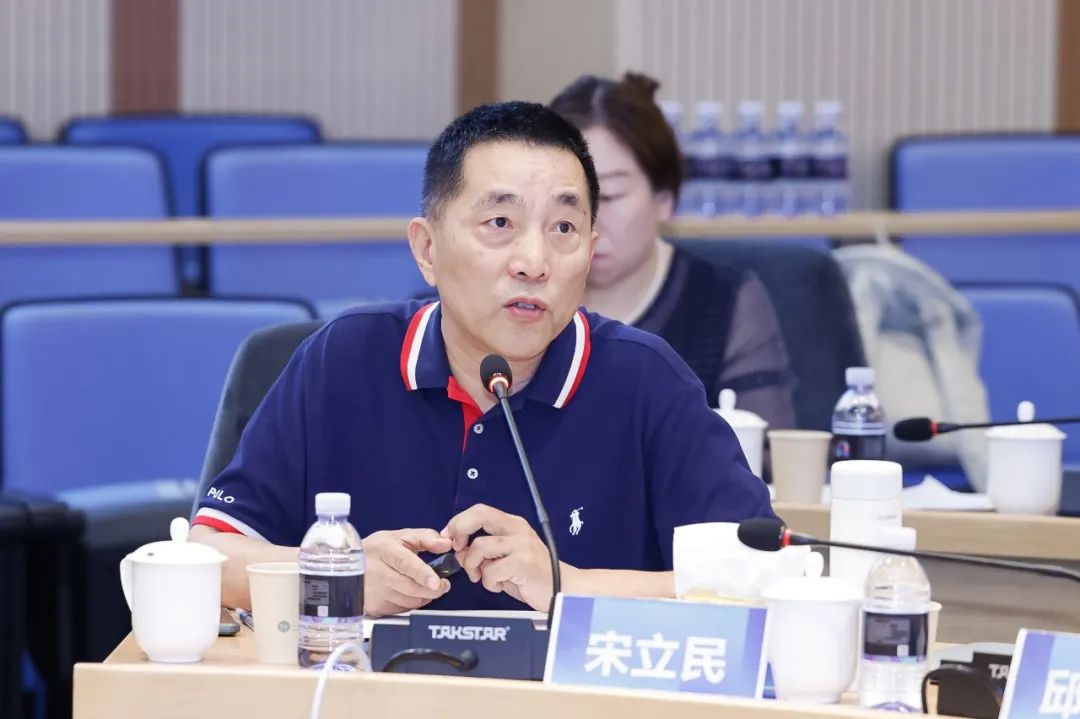
SONG Limin, Director of Department of Environmental Art Design, the Academy of Arts & Design, Tsinghua University
SONG Limin explained the teaching status of the Department of Environmental Art Design in terms of the specialty positioning, training priorities, specialty advantages and problems to be solved. He pointed out that in consideration of the reform and transformation of teaching objectives, contents and methods in the new environment, the Academy should actively and properly handle the dialectical relationship between integrity and innovation under internal and external pressures and challenges.
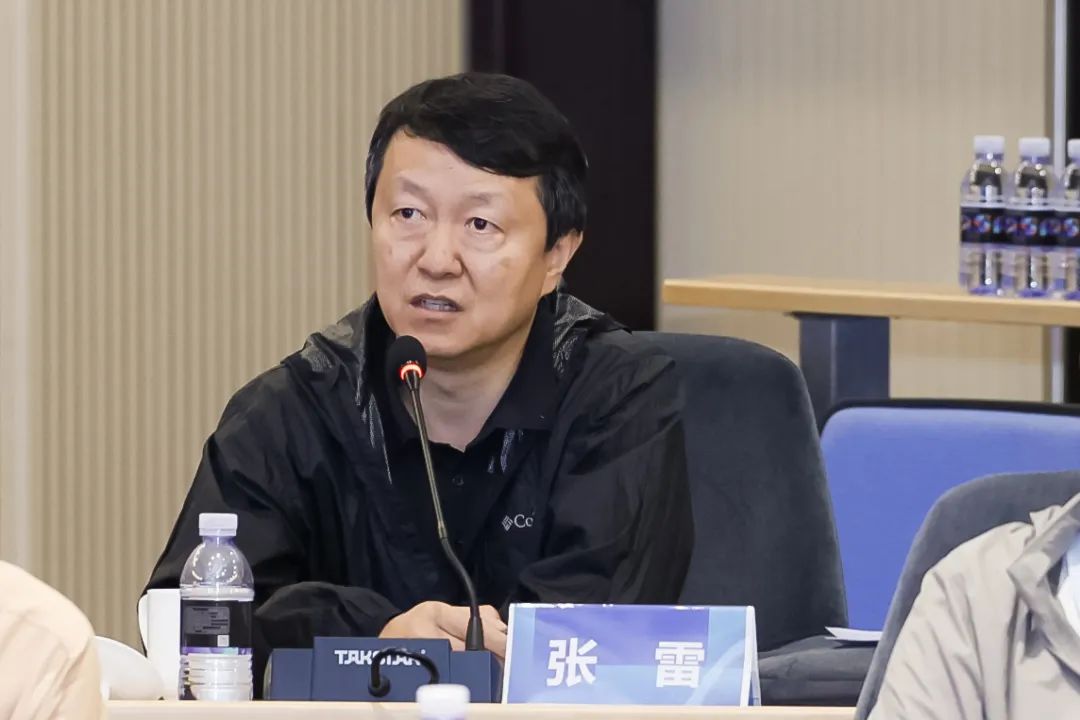
ZHANG Lei, Director of Department of Industrial Design, the Academy of Arts & Design, Tsinghua University
In respect of the teaching of the Department of Industrial Design, ZHANG Lei focused on the cultivating objective of innovative and compound design talents with a global vision and interdisciplinary competence. He stated that "we need to cultivate innovative design talents, who have the courage and ability to realize their own innovative ideas. This is the fruitful and meaningful talent cultivation".
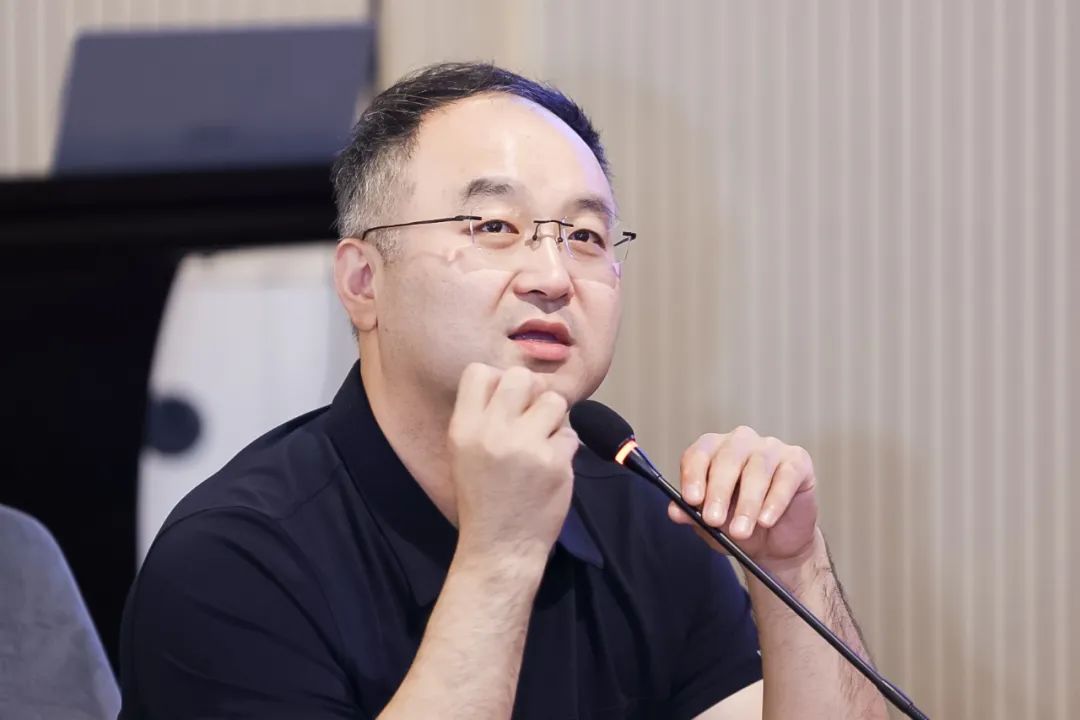
WANG Xiaoxin, Secretary of Party Branch of Department of Arts and Crafts, the Academy of Arts & Design, Tsinghua University
Regarding the Department of Arts and Crafts, WANG Xiaoxin explained the teaching reform plan of the Department of Arts and Crafts from the four aspects such as development status, research of specialty in relevant universities at home and abroad, adjustment and planning of undergraduate training program and the objectives and positioning of discipline development. In his opinion, based on the general education and wide specialty, the manual practice ability, design thinking skills and interdisciplinary innovation concept should be organically integrated to cultivate innovative, international and high-quality talents who could adapt to the future development of society, industry and related fields, which is the development objective and positioning of the current discipline.
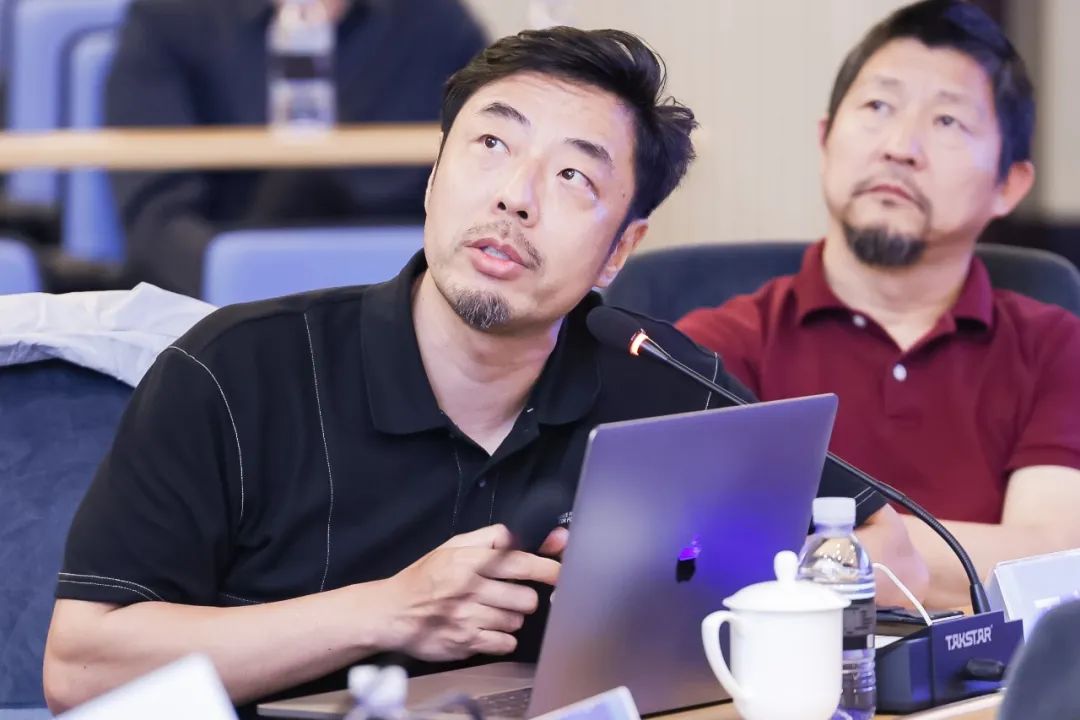
WANG Zhigang, Director of Department of Information Art & Design of the Academy of Arts & Design, Tsinghua University
WANG Zhigang gave a summary of the teaching status of Department of Information Art & Design in terms of the three majors such as art and Technology, animation, and photography. He pointed out that the discipline of information art & design would be crucial for the interdisciplinary integration and development of culture, technology and business. In order to design a better future and achieve the goal of "a society for public benefits", the Academy should explore future signals and collect driving factors based on the long-term goals of industrial transformation and social change, reflect speculative methods in future multiple scenarios, and integrate future thinking into design concept.
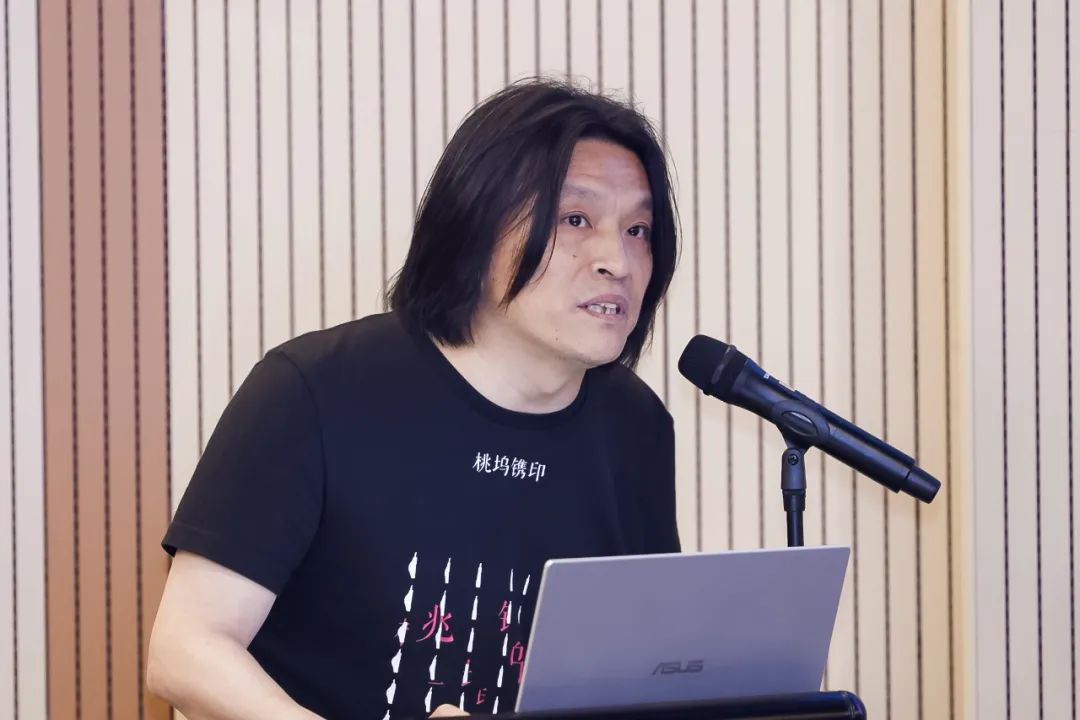
WEN Zhongyan, Director of Department of Painting of the Academy of Arts & Design, Tsinghua University
Regarding the teaching of the Department of Painting, WEN Zhongyan, based on the horizontal comparison of training objectives, teaching mode and advantages of art academy at home and abroad, clarified the training objectives and positioning of the Department of Painting and explained the related matters of curriculum setting and syllabus adjustment.
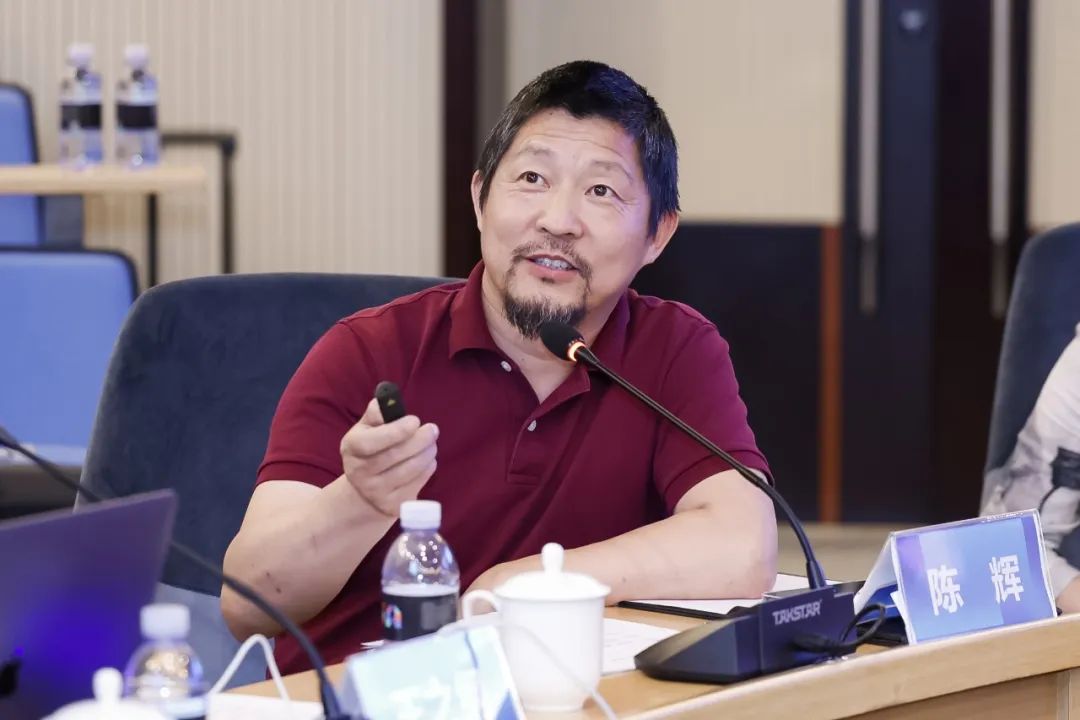
CHEN Hui, Deputy Director of Department of Sculpture of the Academy of Arts & Design, Tsinghua University
With respect to discipline construction and education & teaching of the Department of Sculpture, CHEN Hui gave a summary on the essential characteristics, practical value and social significance of sculpture. In terms of the teaching planning and adjustment, he stated that "the modern transformation of concrete sculpture and traditional Chinese sculpture should be treated as characteristics, and the integration of art and technology represented by digital sculpture and dynamic sculpture should be taken as the starting point for innovation, so as to actively participate in national major creative projects and benefit urban and rural construction".
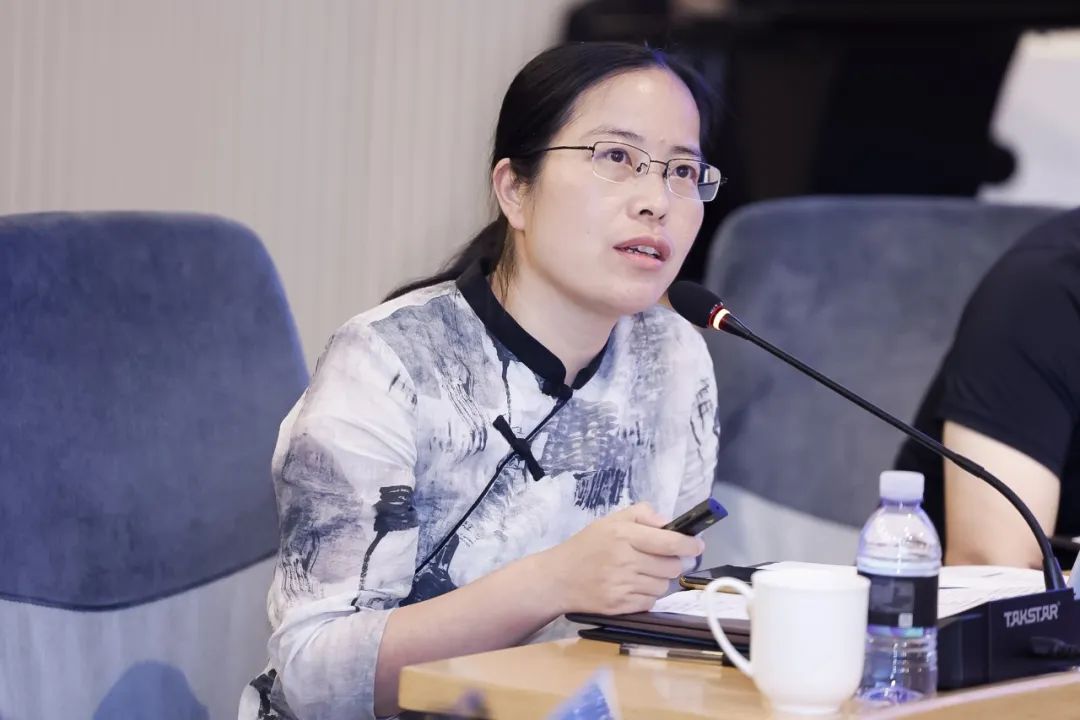
GUO Qiuhui, Deputy Director and Secretary of Party Branch of Department of Art History, the Academy of Arts & Design, Tsinghua University
Regarding the discipline construction and education & teaching of the Department of Art History, GUO Qiuhui briefed three aspects such as research at home and abroad, discipline positioning and training objectives and program, and delivered suggestions on course selection, dissertation writing, and summer semester.
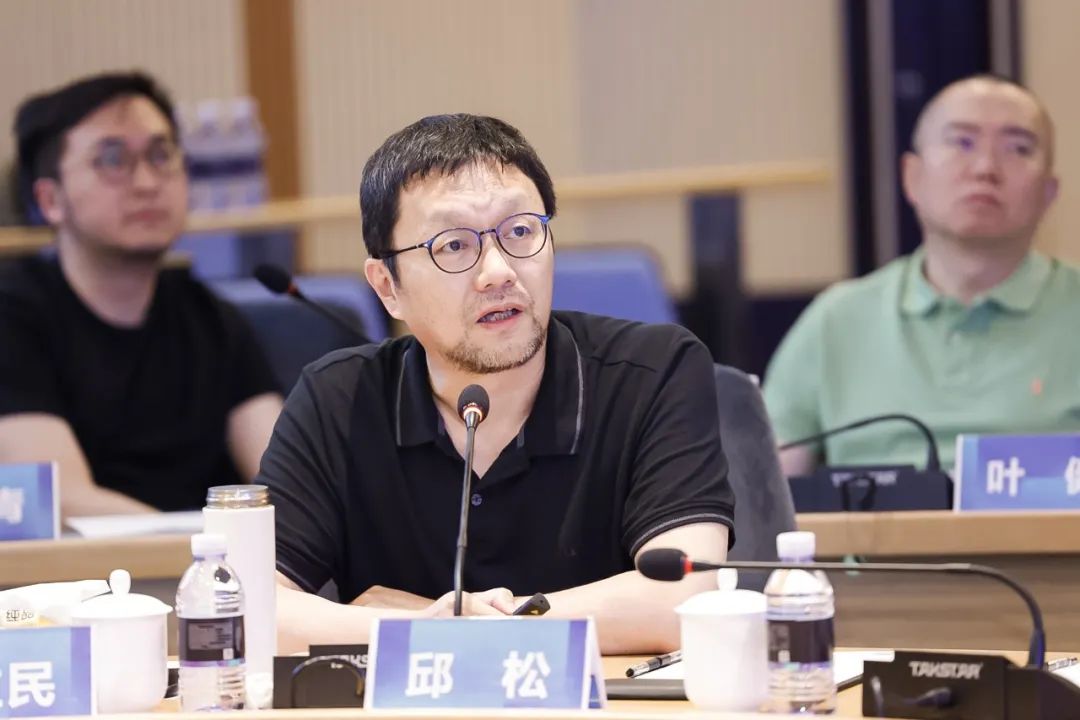
QIU Song, Director of Basic Teaching & Research Group, the Academy of Arts & Design, Tsinghua University
With regard to education & teaching of the Basic Teaching & Research Group, QIU Song gave a report from the four aspects such as teaching resources, the main mode of basic education at home and abroad, general education and professional and technical education, and the teaching reform led by basic education. At the same time, he emphasized the new interdisciplinary form of art, which is an interdisciplinary exchange system guided by the disciplines of the Academy of Arts & Design.
Report on International Project and Interdisciplinary Project
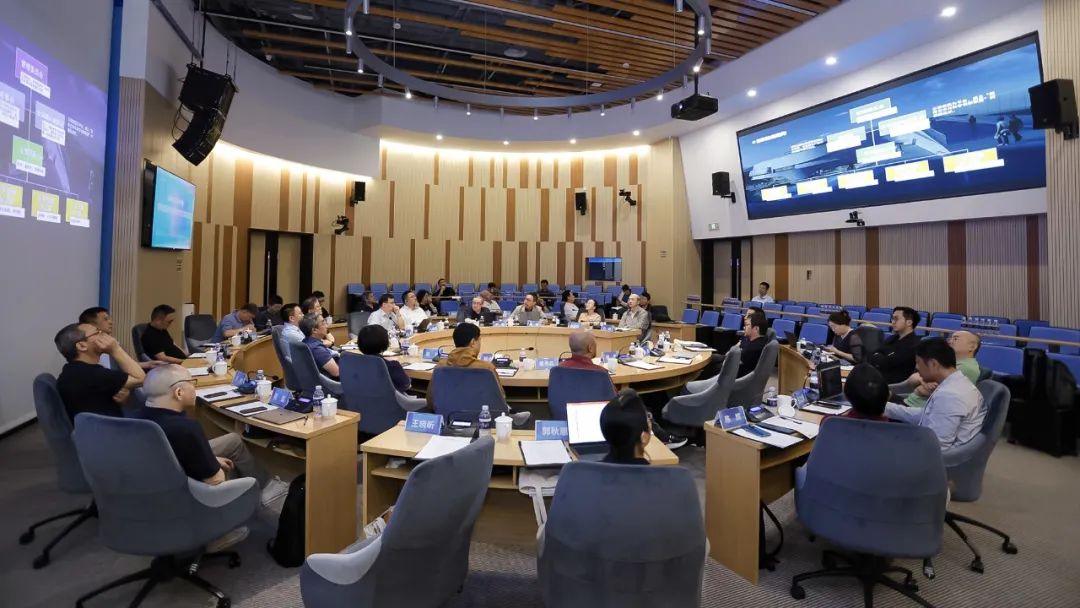
As for the international project and interdisciplinary project, ZANG Yingchun introduced Tsinghua Arts and Design Institute in Milan (ADIM) from three aspects such as establishment, introduction and work; WANG Zhigang outlined the interdisciplinary project in terms of project international benchmarking, project-driven mode, and integration of arts and sciences; Regarding the GIX "Smart Interconnection" project, YANG Dongjiang analyzed the project background, learning process and curriculum setting; ZHAO Chao described GID project from three aspects: talent cultivation objectives, skills training settings, and interdisciplinary practice exploration; With regard to the CDIE project of Xinya College, MA Sai talked about the project background, duration and curriculum setting, and interdisciplinary practice.
Communication and Dialogue
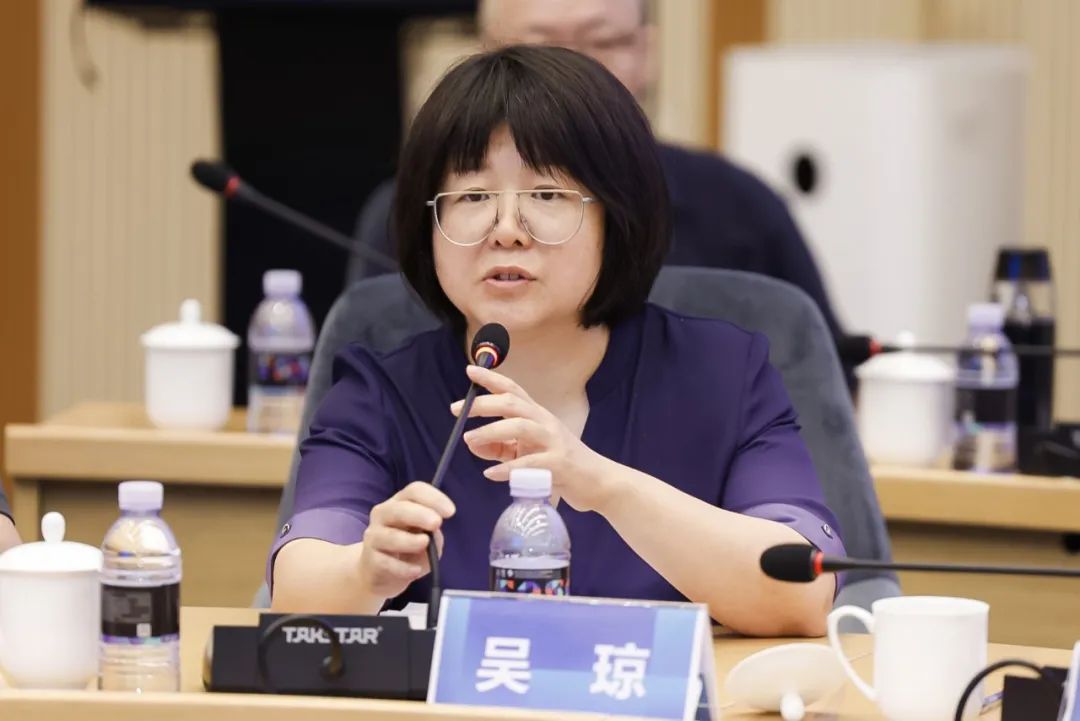
WU Qiong, Deputy Secretary of the Party Committee of the Academy of Arts & Design, Tsinghua University
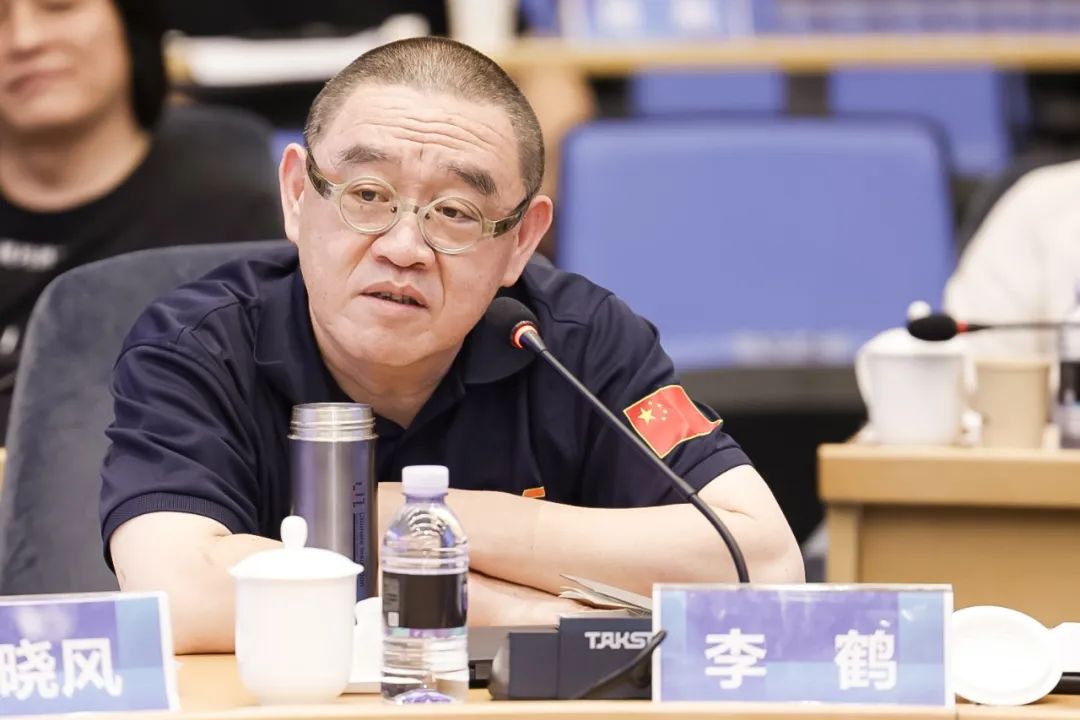
LI He, Deputy Secretary of the Party Committee of the Academy of Arts & Design, Tsinghua University
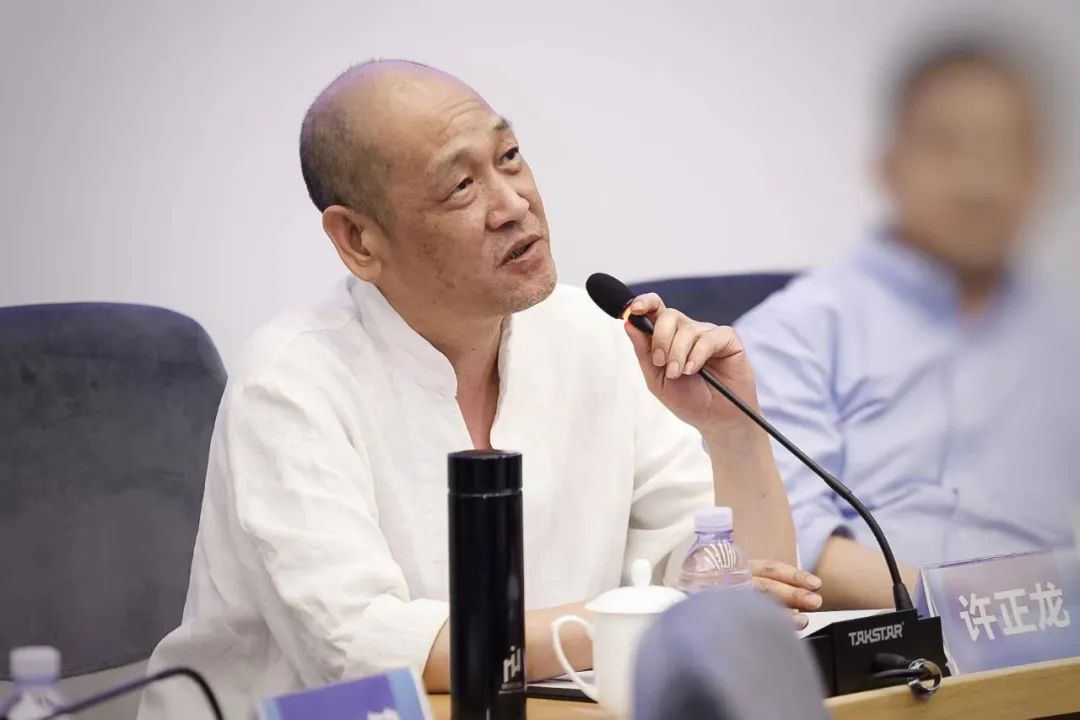
XU Zhenglong, Professor of Department of Sculpture of the Academy of Arts & Design, Tsinghua University
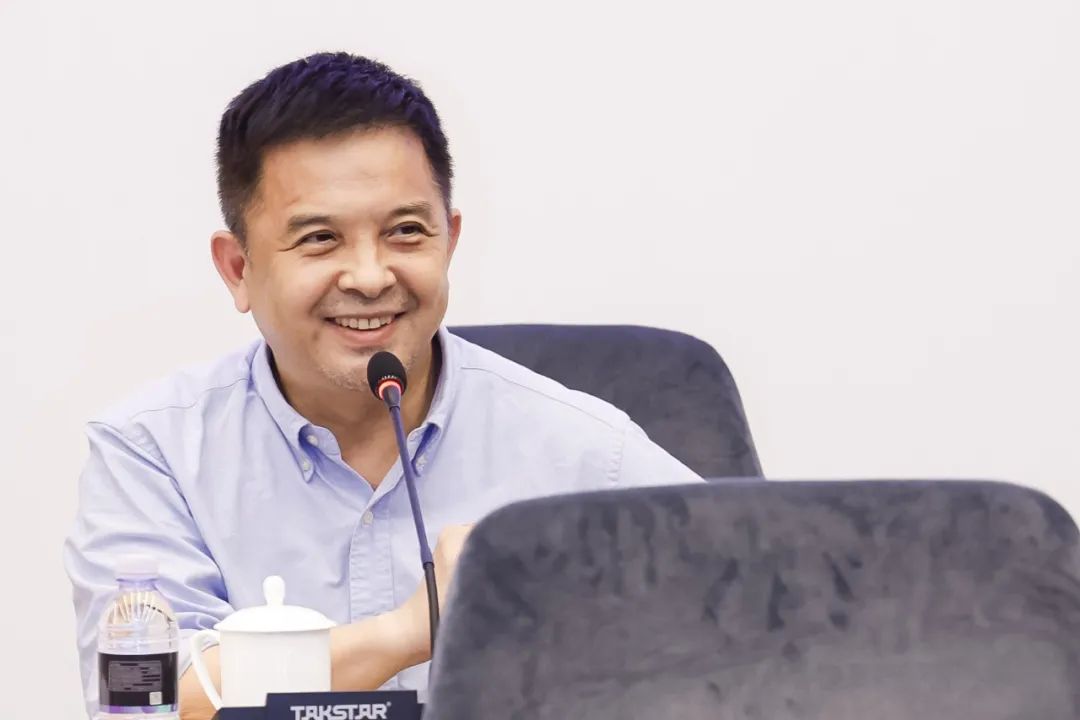
FENG Jianguo, Professor of Department of Information Art & Design of the Academy of Arts & Design, Tsinghua University
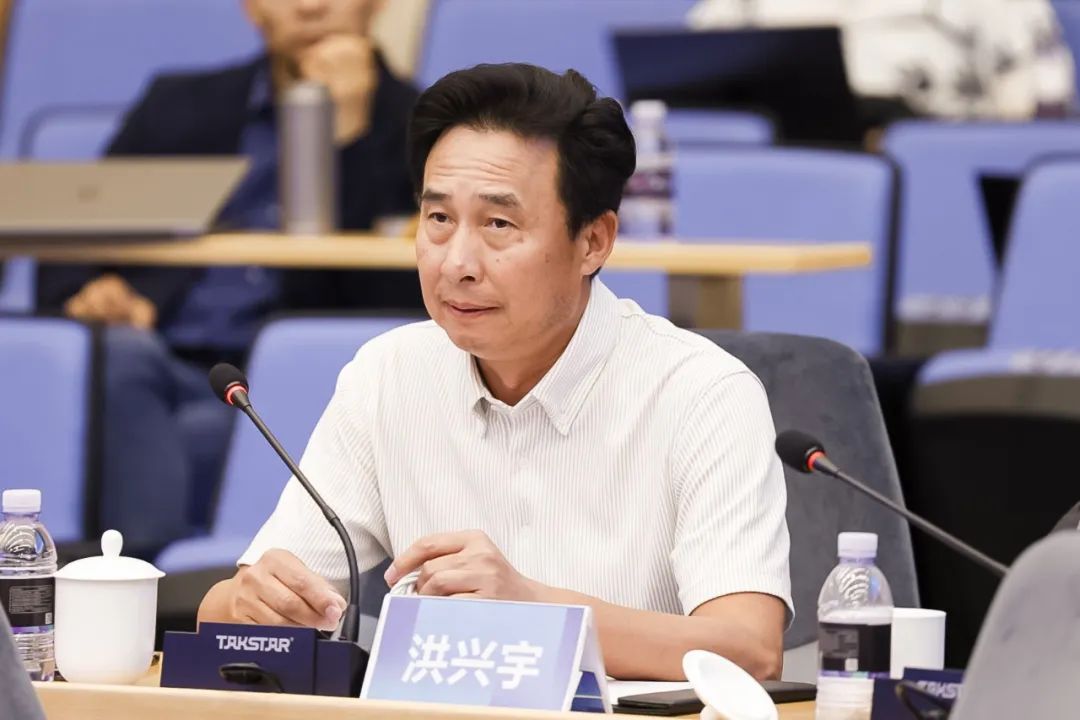
HONG Xingyu, Director of Department of Arts and Crafts, the Academy of Arts & Design, Tsinghua University
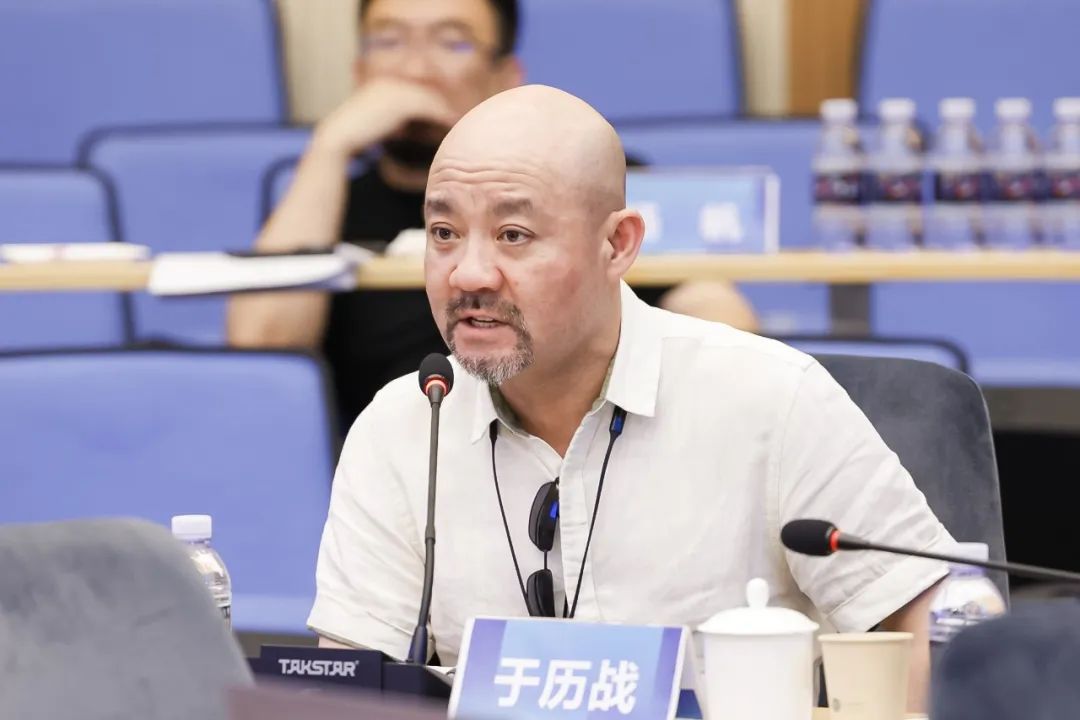
YU Lizhan, Deputy Director of Department of Environmental Art Design, the Academy of Arts & Design, Tsinghua University
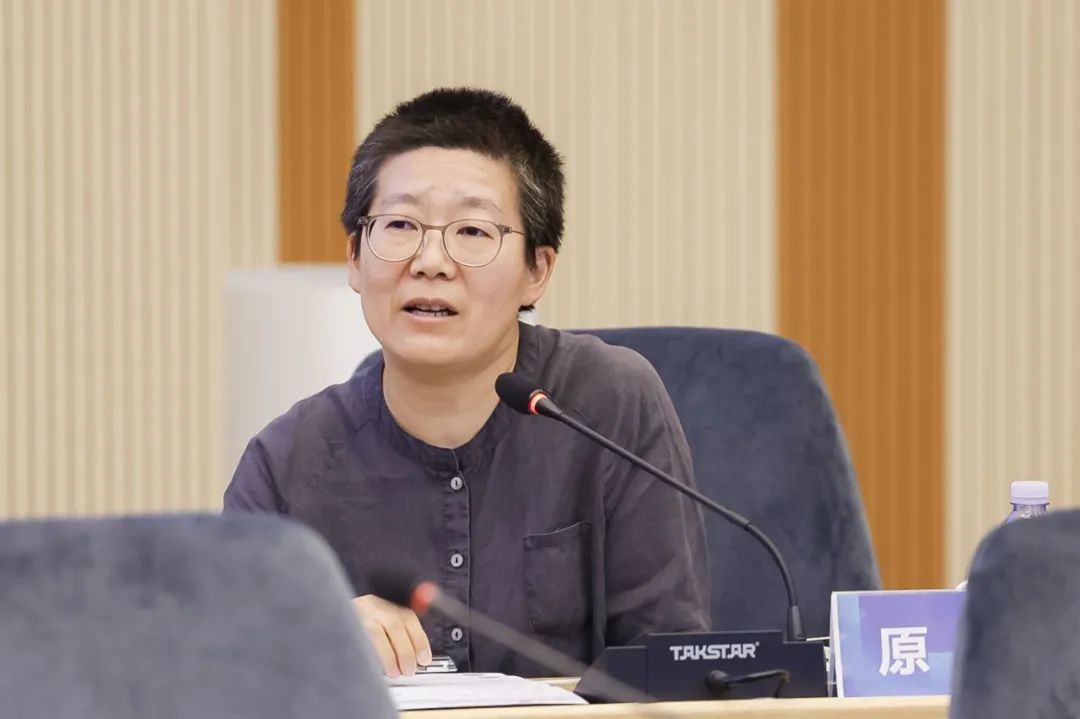
YUAN Bo, Deputy Director of Department of Visual Communication Design, the Academy of Arts & Design, Tsinghua University
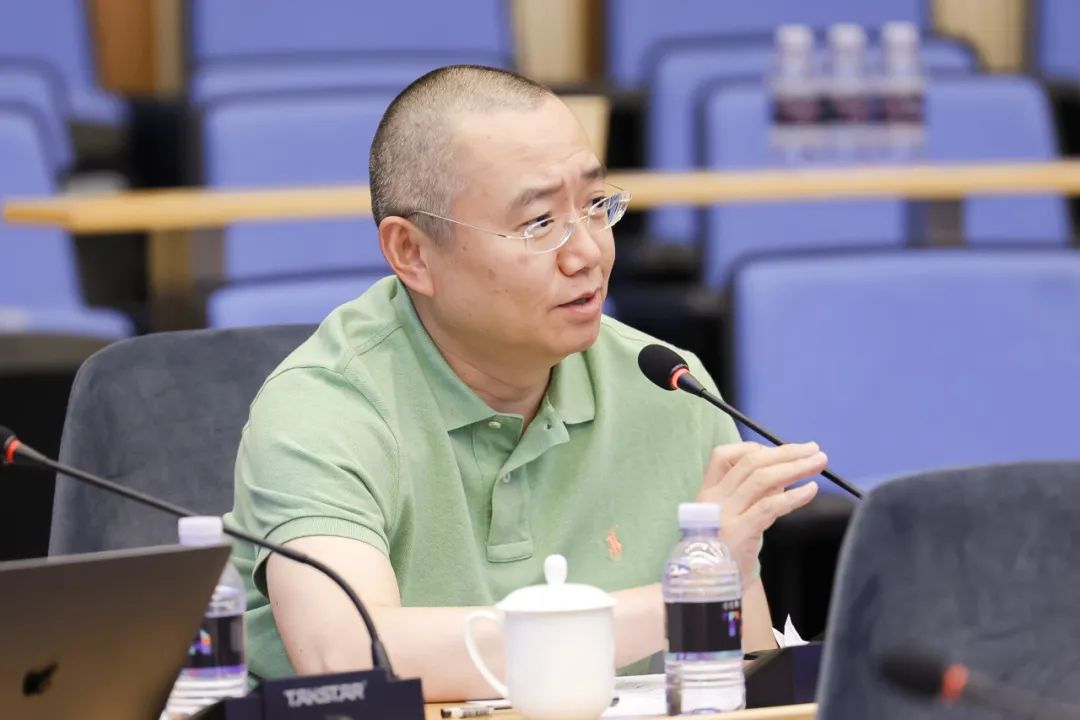
YE Jian, Deputy Director of Basic Teaching & Research Group, the Academy of Arts & Design, Tsinghua University
In the process of free discussion, WU Qiong talked about the establishment of interdisciplinary paths; LI He suggested that TASA should respect the historical evolution and actively conduct the development and transformation; XU Zhenglong offered a proposal about curriculum setting ant its significance of Art History; FENG Jianguo briefly described the development of photography specialty in China and his understanding of interdisciplinary; HONG Xingyu gave a suggestion on the disciplines construction and talents cultivation; YU Lizhan expressed his thoughts on professional education and pointed out that professional training should be in line with the industry trends; YUAN Bo shared her thoughts on the reform of education and teaching, as well as the basic ideas of student-oriented curriculum setting; YE Jian offered relevant suggestions on reform of basic teaching.
